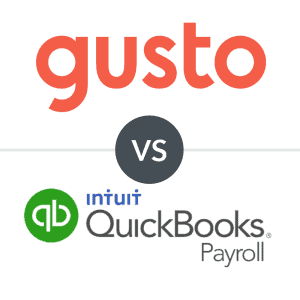Wondering what payroll taxes you have to pay as a small business? Read our detailed guide for a full breakdown of payroll taxes in Massachusetts.
Massachusetts payroll, payroll taxes, and business taxes are a lot to handle for employers in the state. Taxes, as a whole, have fully earned their reputation for being complicated and time-consuming, and Massachusetts taxes are no different.
Fortunately, Massachusetts employers don’t have to handle payroll or business taxes alone. We’ve put together an in-depth guide to Massachusetts payroll taxes, income taxes, business credits, labor laws, and much more.
Keep reading for everything you need to know about Massachusetts payroll and business taxes.
Check out our picks for the best payroll software for small businesses for an in-depth look at the top payroll software solutions on the market, including pricing breakdowns, feature lists, reviews, and much more.
Does Massachusetts Have State Income Tax?
Yes, Massachusetts levies a flat 5% income tax on personal and fiduciary income on residents and non-residents.
Additionally, businesses operating in Massachusetts must pay the state’s corporate excise tax on business income.
The Massachusetts corporate excise tax is taxed as 8% of a business’s net income plus the business’s property or net worth measure.
When Is Massachusetts State Income Tax Due?
For individual taxpayers in Massachusetts, April 15 is the deadline to file your federal and state income taxes, as is the standard date barring any holidays or weekend scheduling conflicts.
For businesses operating in Massachusetts, the corporate excise tax is due on different dates for S and C corporations.
The corporate excise tax for S corporations in Massachusetts is due on the 15th day of the third month after the end of the cooperation’s taxable year, fiscal or calendar.
The corporate excise tax for C corporations, security corporations, and corporate combinations in Massachusetts is due on the 15th day of the fourth month after the end of the cooperation’s taxable year, fiscal or calendar.
Federal & State Payroll Taxes In Massachusetts
Massachusetts payroll taxes include state, federal, and local taxes. Massachusetts employers are responsible for paying personal income taxes, corporate excise tax, FICA taxes, FUTA taxes, SUTA taxes, PMFL contributions, property taxes, sales, and use taxes, luxury taxes, and other business taxes.
Here’s a breakdown of the federal and state payroll taxes Massachusetts employers need to know about.
Massachusetts Income Tax
The current Massachusetts state income tax is 5% for both residents and non-residents.
Massachusetts’ state income tax must be withheld from employees’ paychecks in addition to the federal income tax, which ranges from 0%-37% of an employee’s earned income, depending on their filing status and total earnings.
Massachusetts Corporate Excise Tax
The Massachusetts corporate excise tax must be paid by nonexempt entities operating businesses in the state, including out-of-state or international businesses with physical locations in the state. The state’s corporate excise tax is the summation of:
- Net Income Measure: A Massachusetts business’s net income measure is 8% of the corporation’s taxable net income allocated to the state.
- Property Measure: A property measure is taxed at a rate of $2.60 per $1,000 of tangible property or its taxable net worth.
The total corporate excise tax rate is the combination of a corporation’s net income measure plus whichever property measure amount is greater, with a $456 corporate excise tax minimum.
Federal Social Security & Medicare Taxes (FICA)
Employers in Massachusetts are responsible for withholding and paying social security and Medicare taxes. Social security and Medicare taxes are collectively referred to as FICA taxes, as they were established as a direct result of the Federal Insurance Contributions act.
The current 12.4% social security tax rate applies to employees earning up to $147,000annually and is split between the employer and employee. Employers must withhold 6.2% from an employee’s gross wages and pay the remaining 6.2% out of pocket.
Medicare taxes are also split between employers and employees, with 1.45% withheld from employee paychecks and another 1.45% paid by the employer, totaling to 2.9%.
If an employee earns $200,000 or more annually, an additional 0.9% Medicare tax applies and must be withheld from the employee’s paycheck, regardless of filing status.
Federal Unemployment Insurance Taxes (FUTA)
The Federal Unemployment Tax Act (FUTA) requires businesses to pay federal unemployment insurance taxes at a rate of 6% on the first $7,000 paid to an employee for each tax year.
Massachusetts Unemployment Insurance Contributions
Most private, for-profit businesses in Massachusetts must pay state unemployment taxes ranging from 1.023%-15.599% to the state’s Department of Unemployment Assistance (DUA). Massachusetts state unemployment insurance contributions.
New employers in all industries except construction are assigned an unemployment tax rate of 2.42% for their first three years in business. The rate for construction industry employers increases to 6.72% for the first three years.
After the first three years in business, each business is assessed a new unemployment tax rate depending on its account reserve percentage and current contribution tax rates.
Massachusetts Paid Family & Medical Leave Contributions (PFML)
Most Massachusetts businesses must withhold and make contributions to the state’s Department of Family and Medical Leave.
PFML contributions amount to 0.88% of eligible wages withheld from employee paychecks. Employers can deduct up to 40% of this contribution.
In general, PFML eligible employees are those full-time, part-time, seasonal, and 1099 contractor employees that work within Massachusetts. However, H-2A visa holders, family member co-owners, those working outside Massachusetts, and some contractors aren’t considered PFML eligible.
Massachusetts Property Taxes
Businesses in Massachusetts are required to pay property taxes. Property taxes are collected at a local level and vary depending on your business’s municipality. Check out the Massachusetts property tax data page to learn about property tax rates for your Massachusetts business.
Massachusetts Sales & Use Tax
Businesses operating within the state may be responsible for paying Massachusetts sales and use taxes. The Massachusetts sales tax rate is set at 6.25% for goods and services purchased in the state.
Out-of-state and international businesses operating with a tangible physical presence in Massachusetts are responsible for paying the state’s 6.25% use tax.
Massachusetts Luxury Taxes
Massachusetts levies several luxury taxes, including a newly minted marijuana luxury tax, as the state recently became the eighteenth state to legalize marijuana.
Massachusetts’ luxury taxes include tobacco and cigarettes, marijuana, and alcohol.
Other Massachusetts Business Taxes
Massachusetts levies several business-specific taxes that apply to specific industries. While your business may never have to deal with an aviation fuel tax, you may need to deal with other, less common Massachusetts business taxes.
Here’s a look at some of the less common business taxes to know about in Massachusetts:
- Deed taxes
- Room occupancy excise taxes
- Motor fuel taxes
- Sales and use taxes on motor vehicles
- Out-of-state contractors and subcontractor taxes
- Telecommunications sales tax
- Satellite service sales tax
- Convention center financing surcharges
- Tradeshow and flea market promoter tax
- S corporation taxes
- Ship taxes
- Materialman taxes
- DOR sales tax direct payment permit program
- Estate taxes
- Insurance premium taxes
For more information about business taxes in Massachusetts, check out the Massachusetts Department of Revenue’s Massachusetts business taxes page, which includes an in-depth look at business taxes, rates, and deadlines for businesses operating in the state.
Massachusetts State Tax Exclusions & Exemptions
Several personal income tax exemptions in Massachusetts are available to eligible taxpayers. Additionally, employers should be aware of Massachusetts’s many business credits and corporate excise tax exemptions.
To start, here’s a breakdown of personal income tax exemptions and deductions for eligible taxpayers in Massachusetts:
- Nonresidents: Amount varies
- Part-Year Residents: Amount varies
- Adoption Fees Exemption: Individuals who have paid adoption fees paid during the tax year may be able to deduct the full amount of fees paid
- Aged 65+ Exemption: $700 per eligible individual
- Blindness Exemption: $2,200 per eligible individual
- Dependents Exemption: $1,000 per qualifying dependent
- Bank Interest Exemption: $200 for joint filers or $100 for all other filing statuses
- Medical And Dental Exemption: Amounts vary
- Personal Exemption: $4,400-$8,000 per eligible individual, depending on filing status
- Various Schedule B And D Excess Exemptions: Amounts vary
- Military Personnel And Their Spouses: Amounts vary
Beyond individual tax exemptions, several business tax exemptions may be claimed in Massachusetts.
Most charitable organizations exempt from federal income tax under section 501 of the Internal Revenue Code are exempt from Massachusetts’ corporate excise tax.
Additionally, agricultural businesses organized under Massachusetts General Laws Chapter 157, Section 10 are exempt from the state’s corporate excise tax.
Other businesses that are exempt from the Massachusetts corporate excise include:
- Insurance companies
- Banking and financial institutions
- Safe deposit businesses
- Some organizations with the right of eminent domain
- Some organizations that exercise a franchise in public ways
Massachusetts also offers several business tax credits which can reduce a business’s overall tax burden.
Businesses may be eligible for one or more of Massachusetts’ 21 business tax credits. For more information about business tax credit eligibility, check out the full list of Massachusetts business tax credits.
Massachusetts Labor Laws & Other HR Requirements
Hiring employees in Massachusetts requires businesses to comply with state, federal, and local labor and HR laws. It’s essential to be aware of and abide by these laws to ensure a safe working environment for your employees and avoid penalties for noncompliance. Keep reading for a list of Massachusetts’ labor laws and HR policies for employers.
Massachusetts Minimum Wage
Massachusetts’ minimum wage is set at $15.00 per hour. The minimum wage for agricultural workers is $8.00 per hour.
The minimum wage for service workers who receive tips is $6.75. Tipped workers may be paid the set minimum wage only when their hourly wage plus tips equals or exceeds the current state minimum wage for traditional workers. Otherwise, the employer must pay the difference.
Those businesses that may legally pay employees less than the stated minimum wage, such as those businesses hiring disabled workers, students, or seasonal workers, must apply for a minimum wage waiver.
Massachusetts Equal Opportunity Employment Laws
Equal opportunity employment laws in Massachusetts provide that state employees shall not be denied equal access to employment based on the following attributes:
- Race
- Color
- Sex
- Sexual orientation
- Gender identity
- Creed
- National origin
- Disability
- Age
- Religion
State employers are also required to abide by federal equal opportunity employment laws, which add protection against discrimination based on childbirth, pregnancy, and genetic information.
Massachusetts New Hire Reporting
Massachusetts employers must report all new hires, including employees returning to work after 30-days and independent contracts who are expected to earn more than $600 per tax year. Here is some additional information about new hire reporting in Massachusetts.
- If your Massachusetts-based business has employees in multiple states, you can report all employees, including out-of-state employees, to Massachusetts.
- If you are an out-of-state employer, you must report each employee to their state of origin.
- Employees terminated while having an active Income Withholding Order for child support must be reported to the state.
Business owners can report new hires via mail, fax, and online through MassTaxConnect.com. Keep in mind, that if you have 25 or more employees, you are required to report new hires online.
Massachusetts Labor Laws
Massachusetts labor laws cover essential labor topics, including pay, hourly work, reporting, and deductions. Here’s a breakdown of some of Massachusetts’s most notable labor laws.
- Travel Time: In general, when employees are required to travel anywhere besides their fixed work site, they may be compensated for additional time and travel costs beyond their normal commute.
- Sleep Time: Employees permitted to sleep or do other personal activities during their work shift are still considered working and must be paid for those hours spent working on site.
- On-Call Time: Employees must be paid for all time spent on-call unless they are free to use their time to do what they’d like and aren’t required to remain on-site during their on-call hours.
- Record Keeping: Employers must keep detailed records of employee wages, work titles, hours, identifiers, pay rates, deductions, dates worked, and any other relevant records for at least three years after said information has been recorded.
- Workplace Notices: Employers are required to post workplace notices about minimum wage rates and other relevant information where employees can see the information.
- Reporting Pay: If an employee is scheduled to work more than three hours, but is sent home before completing their scheduled shift, employers a legally required to pay the employee for at least three hours at minimum wage.
- Deductions: Employers are limited in the deductions they can include with an employee’s paycheck, including deductions related to uniforms, meals, and lodging.
Massachusetts Child Labor Laws
Employers hiring child workers under 18 years old must adhere to federal and state child labor laws in Massachusetts. In cases where both state and federal laws conflict, employers must follow whichever law is more restrictive.
Children must be 14 years or older to legally work in the state of Massachusetts. In general, children under the age of 16 may not be employees to:
- Operate, clean, or repair (most) heavy machinery and industrial appliances
- Cook (except on gas or electric grills with no open flame)
- Bake
- Work with anything that has an extreme temperature (over 100 degrees Fahrenheit)
- Work inside of any freezer or cooler
- Work above ground, including on ladders
- Work within the processing industry
- Perform anything that constitutes as hard labor (bricklaying, construction, truck loading, etc)
- Work with any electrical appliances or machinery that is considered dangerous
In general, children under the age of 18 may not be employed to:
- Operate most vehicles (excluding golf carts when applicable)
- Ride as a passenger in a forklift
- Work more than 30 feet in the air
- Operate, clean, or repair heavy machinery or industrial appliances
- Use dangerous power-driven machines
- Work in the foresting, logging, explosive, demolition, fire fighting, roofing, railway, and meatpacking industries
- Handle, sell, or serve alcoholic beverages
- Perform any job that requires a firearm
This is a non-exhaustive list. For a more in-depth look at the laws governing child labor in Massachusetts, check out Massachusetts’ Executive Office of Labor and Workforce Development’s Massachusetts laws regulating minors’ work hours page.
Massachusetts Child Labor Work Hours
Teens must be under the direct supervision of an adult supervisor after 8:00 PM. Additionally, 14 and 15-year-olds may are only permitted to work between 7 AM and 7 PM during the school year and from 7 AM to 9 PM from July 1st to Labor Day.
When school is in session, 14 and 15-year-olds may not work more than 18 hours a week, 3 hours per school day, 8 hours on weekends and holidays, or 6 days a week.
Employees who are 16 and 17 years old may work from 6 AM to 10 PM on school days and from 6 AM to 11:30 PM on non-school days. Those teens working at a racetrack or restaurant may work from 6 AM to 12:00 AM on non-school days.
Otherwise, 16 and 17-year-old workers are allowed to work up to 48 hours a week, 9 hours a day, and 6 days a week.
Massachusetts Payday & Termination Pay Laws
Massachusetts employers must pay hourly workers every week or every other week.
If an hourly employee has worked 5-6 days in a calendar week, they must be paid within 6 days after the pay period ended. Hourly employees who have worked 1-4 or 7 days in a calendar week must be paid within 7 days after the pay period has ended.
Here are some additional Massachusetts employee pay laws to know:
- Overtime: Eligible employees who have worked for 40 hours in a single week must be paid overtime at a rate of 1.5 times their regular pay rate for every hour additional hour worked that week.
- Terminated Employees: Employees who have been fired or laid off must be paid in full on their last day of work.
- Employees Who Quit: Employers must pay employees who’ve quit on the next regular payday or, if there is no next payday, by the first Saturday after they quit.
Massachusetts Paid Sick Time Policy
Massachusetts employers with more than 11 employees are required to provide paid sick time to eligible employees who have accrued sick time. Employers with fewer than 11 employees must provide sick time, which may be unpaid.
Eligible Massachusetts employees must earn at least one hour of sick time per 30 hours worked and may accrue up to 40 hours of paid sick time per year.
Massachusetts employees who may not be eligible for earned sick time include:
- Employees who do not work primarily in Massachusetts
- Employees who work at and attend school at a Massachusetts college or university
- Employees who are school-aged students and covered by the Individuals with Disabilities Education Act (IDEA)
- Employees who work for government entities
- Employees who are adults working in a state-licensed program with work duties set as a part of their educational or vocational training
Massachusetts Paid Family Leave Policy
Massachusetts operates under a Paid Family and Medical Leave (PFML) program which allows employees to take up to 26 weeks of paid time off per benefit year. PFML time may be used in the following ways:
- Self-Care: Employees suffering from serious health conditions that have been certified by a medical provider may take up to 20 weeks of paid time off.
- Family-Care: Employees may take up to 12 weeks of paid time off to care for any family member with a serious health condition that has been certified by a medical professional.
- New Child Bonding: Employees may take up to 12 weeks of paid time off to bond with their new child, including biological children, adopted children, or foster children.
- Active Duty Affairs Management: Employees may take up to 12 weeks of paid time off to manage the affrays for a family member currently on active duty.
At the federal level, employees are also protected under the federal Family and Medical Leave Act (FMLA). This act provides employees with up to 12 weeks of unpaid leave for the exact same reasons one would take PFML leave. FMLA also provides up to 26 weeks of unpaid leave for employees caring for family members in the armed services.
Massachusetts Disability Insurance Laws
There are no state-level Massachusetts laws that require employers to provide disability insurance. The federal government’s social security program generally provides disability insurance benefits for eligible Massachusetts employees.
Massachusetts Workers’ Compensation Laws
The majority of Massachusetts businesses are required to carry workers’ compensation insurance with coverage for all employees, including themselves if they are legally an employee of the company.
Exceptions to this policy who are not required to carry workers’ compensation insurance in Massachusetts include:
- Sole proprietors of unincorporated businesses
- LLC members
- LLC partners
- Corporate officers with ownership of 25% or more of the corporation (requires an application for exemption)
Domestic employers must work 16+ hours to be covered by workers’ compensation. However, all other employees must be covered regardless of hours worked.
Massachusetts Meal Breaks
Although no federal laws govern meal breaks, Massachusetts requires employees to get at least 30 minutes of meal break time if they work more than six hours per shift. This time may be unpaid unless the employee chooses to work through their meal break.
Massachusetts Paid Jury Duty Laws
Massachusetts laws require employers to pay employees for their juror duty service. Most Massachusetts employees must be paid for any work missed during jury duty service’s first three days.
Past the fourth day, the state steps in to compensate eligible jurors $50 per day of service, of which the full amount is taxable.
Employers may opt to pay employees their normal wages for the entirety of their jury duty service but may require employees to turn over their $50 state compensation in return.
Unemployed or retired jurors may be reimbursed for childcare and travel costs of up to $50 per day for their first three days of service.
How To Calculate Payroll Taxes In Massachusetts
Now that you have a good grasp of essential payroll taxes in Massachusetts, you can get started on calculating payroll taxes for your business. Here’s everything you need to know about calculating payroll taxes in Massachusetts.
Step 1: Standardize Your Hiring Process
Payroll starts with hiring, regardless of whether you’re just paying yourself or have hired your 100th employee.
During the hiring process, gathering and securely storing employee tax forms and personal information is essential. To start, you’ll need to have your employee fill out an I-9 form and W-4 form for standard employees.
I-9 forms are used to establish an employee’s eligibility to work in the US, while W-4 forms are used to establish tax withholding rates for individual employees.
If you will be hiring a 1099 contractor to complete paid work for your business, they should fill out and submit Form W-9.
Finally, you’ll need to report new hires. New-hire reports are used to determine whether an employee is required to have their wages garnished for child support, alimony payments, and some commercial debts. As an employer, you will be notified of any required garnishments and are responsible for calculating the garnishment amount and withholding that amount from employees’ wages.
Once you have gathered all the essential forms and information from your new hire, you’ll need to securely store them, as legally required by the state of Massachusetts and the IRS.
Step 2: Determine Which Payroll Taxes You Must Calculate
While not all businesses have the same payroll tax obligations, it’s important to know which payroll taxes your business will need to pay based on your current status.
Here’s a look at the payroll taxes your Massachusetts business may be responsible for withholding and paying:
- Federal unemployment taxes
- State unemployment taxes
- Income taxes
- Social security taxes
- Medicare taxes
- PMLA contributions
- Local taxes (as applicable)
Step 3: Calculate Payroll Taxes
First, you’ll need to gather your employees’ gross earnings, including hourly pay, salaried pay, and all supplemental earnings. To calculate payroll taxes, multiply each tax rate by your employees’ gross earnings, expressed as an equation, the
In action, the equation for calculating payroll taxes is:
((Payroll Tax Rate/100) X (Employee’s Gross Wages)) = Payroll Tax Liability
Using this equation, we can calculate the 1.45% medicare tax withholding and employee match for tax liability for an employee that has grossed $2,000 during the pay period.
((1.45%/100) X ($2,000)) = $29
In this example, the employer would be responsible for withholding $29 in medicare taxes from the employee’s earnings and paying $29 out of pocket as the employer’s medicare tax liability.
Step 4: Pay & Withhold Payroll Taxes Via MassTaxCollect & The Federal EFTPS
Once you’ve calculated your payroll tax liability, you can handle withholding and make the necessary payments on behalf of your business and employees.
It’s possible to make payments by mail or fax, but it’s more convenient and sometimes a requirement to make your payments online.
Most businesses aren’t required to pay state payroll taxes through Massachusetts’ MassTaxCollect portal, but it’s open to all businesses that are looking for an easy way to handle tax withholding and payments. Through MassTaxCollect, businesses can:
- Report new-hires
- Make payroll tax payments
- Make business tax payments
- Review tax resources
- Appeal or file abatements
- Report Health Insurance Responsibility Disclosures (HIRD)
- Make PMFL contributions
When paying federal payroll taxes, businesses can sign up for the federal government’s Electronic Federal Tax Payment System (EFTPS). The system is free to use, secure, and makes it easy for businesses to make and manage tax payments, including:
- Business income taxes
- Employment taxes
- Estimated taxes
- Excise taxes
- Withholding taxes
When it comes to paying and depositing payroll taxes, there are several different deadlines you’ll need to know — which is another reason why it’s best to use an online payment system. With these systems, you can schedule your payment and deposits to recur regularly, ensuring that you never miss a payment.
Step 5: Finalize & Make Payroll Deductions
Employers are responsible for making payroll deductions, both voluntary and involuntary. Payroll taxes and mandatory wage garnishments fall under the involuntary payroll deductions umbrella.
However, several deductions are voluntary and may be deducted before taxes are taken out or post-tax. Some voluntary pre-tax payroll deductions include:
- Health insurance premiums
- Tax-advantaged health savings plans contributions
- Life insurance premiums
- 401(k) retirement plan contributions
Some voluntary post-tax deductions include:
Step 6: Process Payroll
Once you’ve handled your employees’ tax withholding and deductions, you can get your payroll processed. You’ll need to manually make direct deposits or print checks if your business doesn’t use payroll software.
Moreover, if your business does not use payroll software, you’ll have to manually run through the entire process of calculating, withholding, and paying payroll taxes.
While some don’t mind the effort and math involved in the process of calculating payroll, there’s no denying that it’s a bit of a time-drain. If you want to simplify these steps, choosing one of the best payroll software options can save you a lot of time calculating payroll.
Massachusetts Payroll Tax & State Resources
As an employer, handling Massachusetts payroll taxes on top of business taxes is a headache waiting to happen. However, it’s important to be proactive when filing and paying taxes, lest you deal with the even larger headache of filing extensions, dealing with penalty payments, and amassing significant debts.
Fortunately, Massachusetts maintains an impressively organized state website with plenty of resources to help you on your state tax journey. Moreover, the state is home to plenty of well-qualified tax specialists that can help you handle your business’s tax liabilities like a pro.
If your business is already established, but you want to learn more about payroll, check out our post on business payroll taxes for a deep dive into withholding, handling payroll taxes, and getting your taxes paid on time.
FAQs About Massachusetts Payroll
Does Massachusetts have state income tax?
Massachusetts’s income tax is 5% on nonexempt income.
How do I do payroll in Massachusetts?
To run payroll in Massachusetts, you’ll need to gather all relevant information about your employees and contractors to be paid, calculate each individual’s gross earnings, calculate and withhold payroll taxes, make deductions, and pay employees.
It’s a long process, so take a look at our guide to running payroll for a step-by-step breakdown of the process.
What payroll taxes do employers pay in Massachusetts?
Employers in Massachusetts are responsible for paying or withholding the following payroll taxes: social security taxes, medicare taxes, FUTA taxes, Massachusetts unemployment taxes, PFML contribution taxes, and state and federal income tax.
How much is Massachusetts's minimum wage?
The Massachusetts minimum wage is currently $15.00, except for agricultural workers who have. minimum wage of $8.00/hour.
Can my employer pay me late in Massachusetts?
Employers in Massachusetts are legally required to pay hourly employees weekly or bi-weekly, depending on the days an employee has worked that week.












